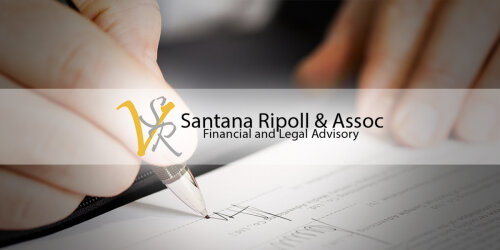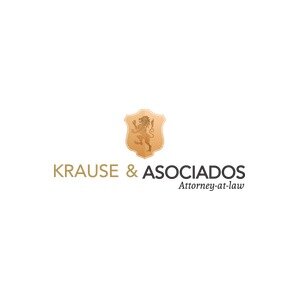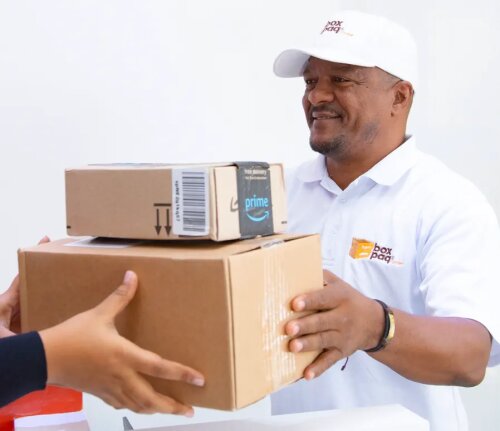Best Mining Law Lawyers in Puerto Plata
Share your needs with us, get contacted by law firms.
Free. Takes 2 min.
List of the best lawyers in Puerto Plata, Dominican Republic
About Mining Law in Puerto Plata, Dominican Republic
Mining Law in Puerto Plata, Dominican Republic governs the exploration, extraction, and processing of minerals within the region. The legal framework is based on national regulations but is also influenced by local administrative policies specific to Puerto Plata. The primary legislation is the Mining Law No. 146, enacted in 1971, which outlines the rights and obligations of those involved in mining activities. This area of law covers issues related to mining concessions, environmental protection, community relations, labor rights, and taxation. Puerto Plata is known for its mineral resources, including amber, ferronickel, and limestone, making mining a significant economic activity. Legal compliance is critical due to the complex regulatory landscape and the potential for disputes among stakeholders.
Why You May Need a Lawyer
There are many situations where legal advice becomes essential for individuals and companies involved in mining in Puerto Plata. You may need a lawyer if you are:
- Seeking to obtain or renew a mining concession or license
- Negotiating mining contracts or joint ventures
- Dealing with compliance issues related to environmental or labor regulations
- Facing disputes with local communities or landowners
- Challenging government decisions or administrative penalties
- Handling issues related to mining taxes and royalties
- Responding to claims of environmental damage or degradation
- Transferring or selling mining rights
Having the support of an experienced mining law attorney helps ensure that your interests and investments are protected while complying with all relevant obligations.
Local Laws Overview
Mining activity in Puerto Plata must comply with both the national Mining Law No. 146 and regulations put forth by the Dirección General de Minería (General Mining Directorate). Obtaining a mining concession is a multi-step process that requires environmental assessments, community consultations, and governmental approvals. Key aspects include:
- Licensing and Concessions: Individuals or companies must apply for and be granted permits to explore, exploit, or process mineral resources. Unauthorized mining is subject to severe legal penalties.
- Environmental Protection: Environmental Impact Assessments (EIAs) are mandatory before major mining activities. The Ministry of Environment and Natural Resources enforces compliance with these regulations to protect the ecosystem.
- Community Engagement: Mining projects often require dialogue with local communities for social license and to manage agreements on land use and benefits.
- Labor Laws: Mining companies must adhere to Dominican labor laws which establish minimum wage, workplace safety, and employee rights.
- Taxation and Royalties: Specific taxes and royalties apply to mineral extraction. Non-compliance can lead to penalties or revocation of mining rights.
Understanding these layers of law is fundamental to avoiding legal trouble and navigating the local mining sector successfully.
Frequently Asked Questions
What minerals are most commonly mined in Puerto Plata?
Puerto Plata is known for minerals like amber, limestone, and to a lesser extent, precious metals. The region also has deposits of ferronickel and other industrial minerals.
Who regulates mining activities in Puerto Plata?
The main regulatory body is the Dirección General de Minería, which operates under the Ministry of Energy and Mines. Environmental aspects are supervised by the Ministry of Environment and Natural Resources.
How do I obtain a mining concession or license?
You must apply to the Dirección General de Minería by submitting detailed documentation, including exploration plans, proof of financial capacity, and an environmental impact assessment. The application process is strict and can take several months.
What are the main legal requirements before starting a mining project?
You must secure a valid mining concession, obtain environmental clearance, and comply with labor and safety regulations. Community consultations are also required for larger projects.
Are there taxes or royalties on mineral extraction?
Yes, companies pay royalties and mining-specific taxes based on production volumes and mineral values. These are set by national law and enforced by tax authorities.
What are the consequences of illegal mining?
Illegal mining can result in the confiscation of equipment, fines, closure of operations, and criminal charges against responsible parties.
Do mining companies need to consult communities before starting work?
Yes, especially for medium and large-scale projects, consultation with affected communities is mandatory. These consultations help ensure local support and address any concerns.
Can a mining concession be transferred or sold?
Yes, but the transfer or sale of a mining concession requires government approval. Parties must comply with legal procedures to ensure the validity of the transaction.
What role does environmental protection play in mining law?
Environmental protection is a central concern in mining regulation. No significant mining development can proceed without a thorough environmental impact study and adoption of mitigation measures.
What should I do if I experience a dispute related to a mining project?
Seek immediate legal assistance. Disputes can often be resolved through negotiation or alternative dispute resolution, but some cases may require litigation before administrative or civil courts.
Additional Resources
Here are some resources and governmental bodies that may be helpful if you need further information or assistance related to mining law in Puerto Plata:
- Dirección General de Minería: The main regulatory agency for mining activities
- Ministerio de Energía y Minas: Governs the broader energy and mining sector
- Ministerio de Medio Ambiente y Recursos Naturales: Responsible for environmental approvals and oversight
- Cámara Minera Petrolera de la República Dominicana (CAMIPE): Supports industry stakeholders
- Local Bar Associations and law firms specializing in mining and environmental law
Next Steps
If you are considering involvement or investment in mining activities in Puerto Plata, or are facing legal challenges, it is important to take the following steps:
- Gather all relevant documents, including contracts, permits, and correspondence
- Consult with a local attorney who specializes in mining law and understands the regional nuances
- Prepare a list of questions and objectives you wish to discuss with your lawyer
- Contact the appropriate governmental authorities to clarify regulatory requirements
- Consider mediation or other dispute resolution mechanisms if you find yourself in a conflict
Prompt legal advice can help prevent costly mistakes and ensure a smooth, compliant mining operation in Puerto Plata. Do not hesitate to seek professional legal guidance to protect your interests and those of your business or community.
Lawzana helps you find the best lawyers and law firms in Puerto Plata through a curated and pre-screened list of qualified legal professionals. Our platform offers rankings and detailed profiles of attorneys and law firms, allowing you to compare based on practice areas, including Mining Law, experience, and client feedback.
Each profile includes a description of the firm's areas of practice, client reviews, team members and partners, year of establishment, spoken languages, office locations, contact information, social media presence, and any published articles or resources. Most firms on our platform speak English and are experienced in both local and international legal matters.
Get a quote from top-rated law firms in Puerto Plata, Dominican Republic — quickly, securely, and without unnecessary hassle.
Disclaimer:
The information provided on this page is for general informational purposes only and does not constitute legal advice. While we strive to ensure the accuracy and relevance of the content, legal information may change over time, and interpretations of the law can vary. You should always consult with a qualified legal professional for advice specific to your situation.
We disclaim all liability for actions taken or not taken based on the content of this page. If you believe any information is incorrect or outdated, please contact us, and we will review and update it where appropriate.











